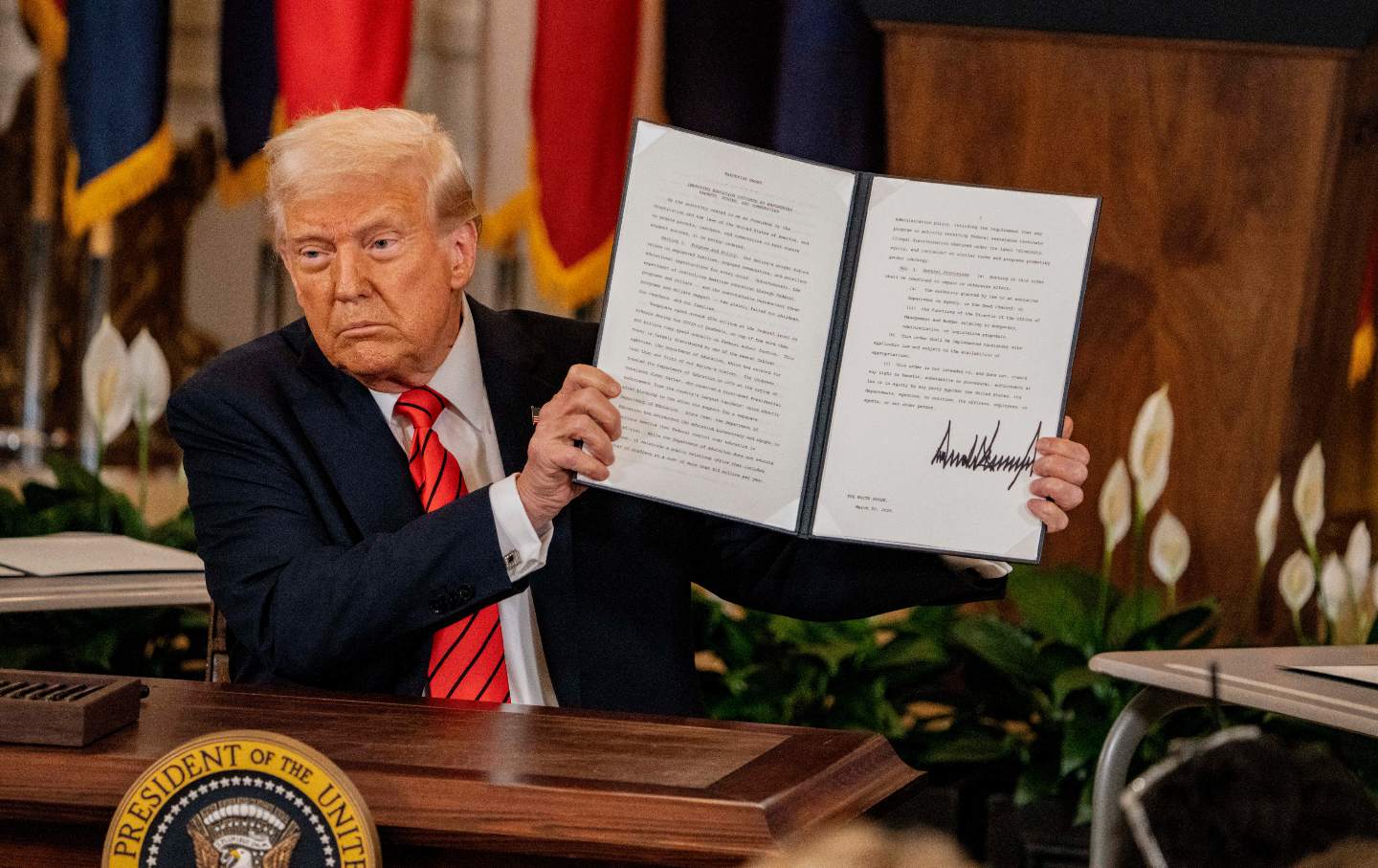June 6, 2025
The Gutting of the Department of Education Is Worse Than You Think
By Phoebe Grandi
Four experts on public education in the US spoke to The Nation about how the dismantling of the Department of Education will hurt students immediately and in the years to come.
Elsie Carson-Holt and Adelaide Parker

Since the Department of Education was formed by Congress in 1979, gutting it has been an enduring priority for the conservative movement. Ronald Reagan promised to shutter the year-old department when he became president in 1980, and Donald Trump, with a sweeping executive order signed on March 20, effectively achieved this when he dismantled its key functions. The move jeopardizes services for students across the United States, including administering federal funds for public schools, managing student loans, and overseeing how grants are managed by state governments.
Undoubtedly, marginalized student communities—such as low-income, disabled, and students of color—will be the most impacted by the downsizing of the DOE. What is less clear is the specific implications of the executive order, and how and when they will unfold. We’ve gathered four experts on public education in the United States to talk about how the dismantling of the Department of Education will hurt students immediately and in the years to come.
Jesse Hagopian is a writer, editor, activist, and educator based in Seattle, Washington. Jennifer Berkshire is a journalist who has written extensively about education; she also is the creator and cohost of the podcast “Have You Heard,” and works at the Boston College Prison Education Program and the Education Studies program at Yale. Eleni Schirmer is a writer, educator, and organizer whose work focuses on student debt and teacher unions. Paul Reville is the former secretary of education in Massachusetts, and a professor of practice of educational policy and administration at Harvard University.


